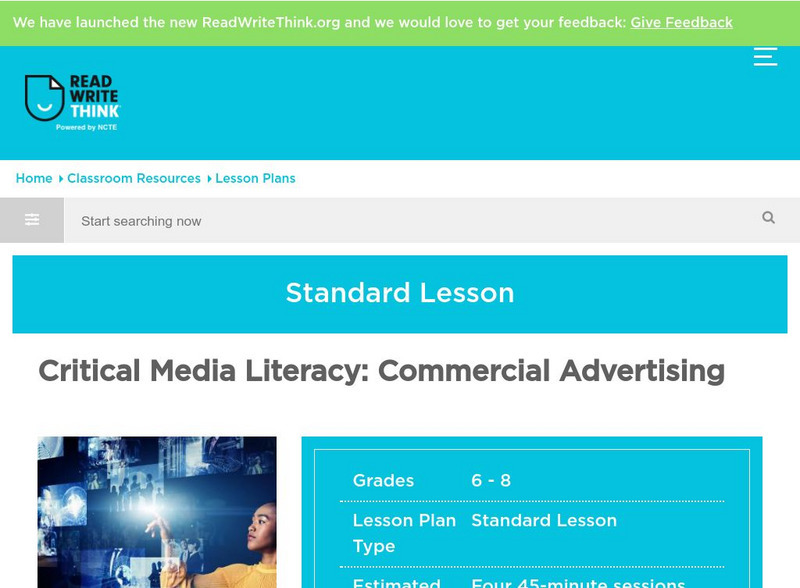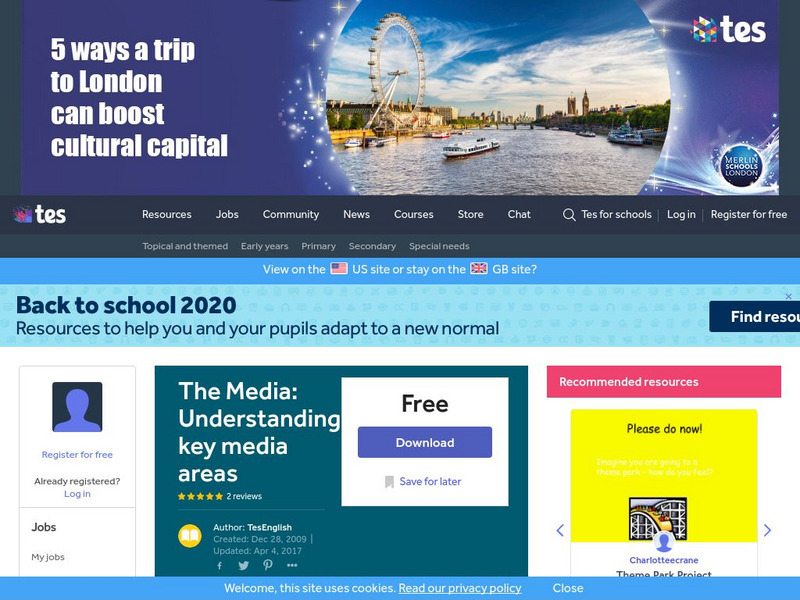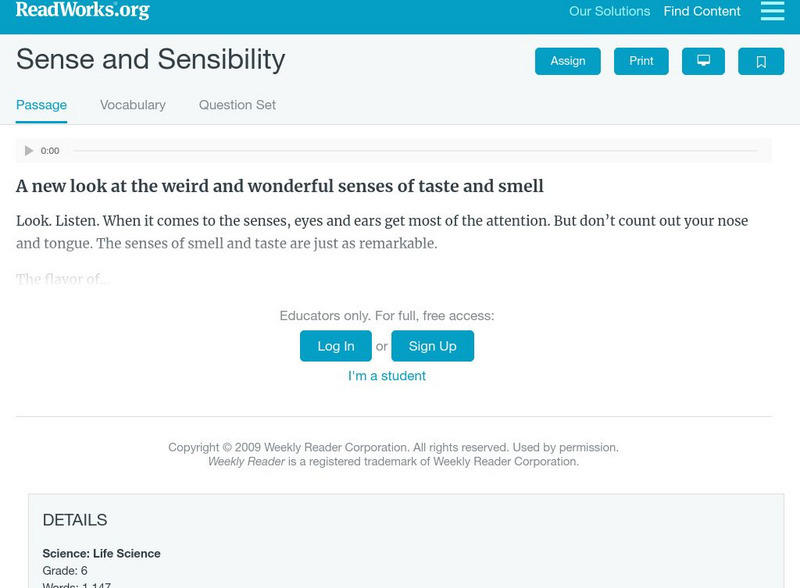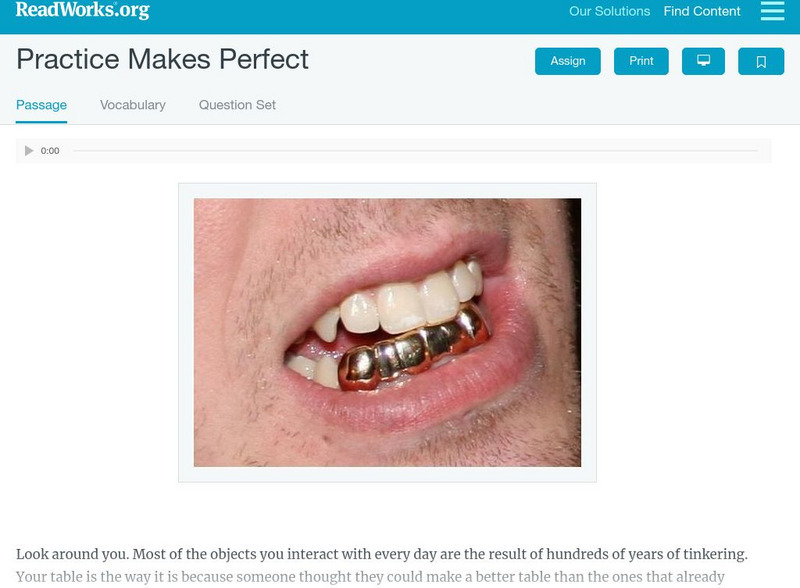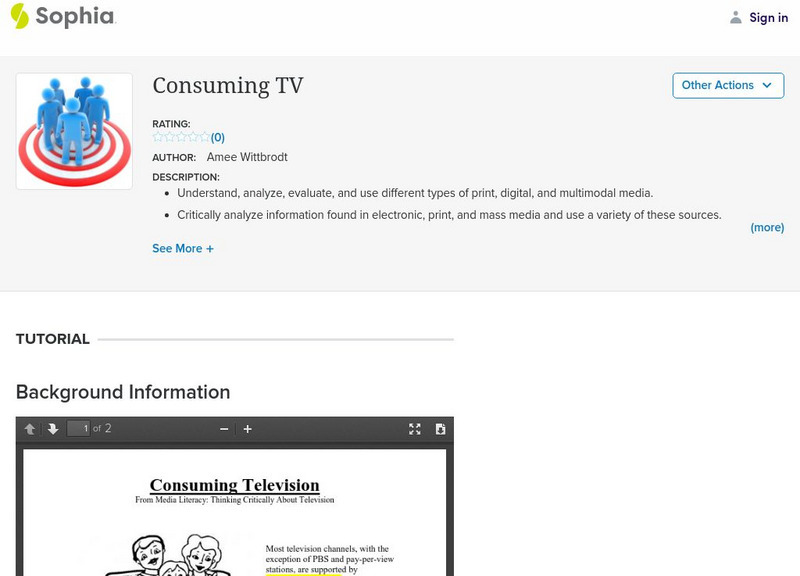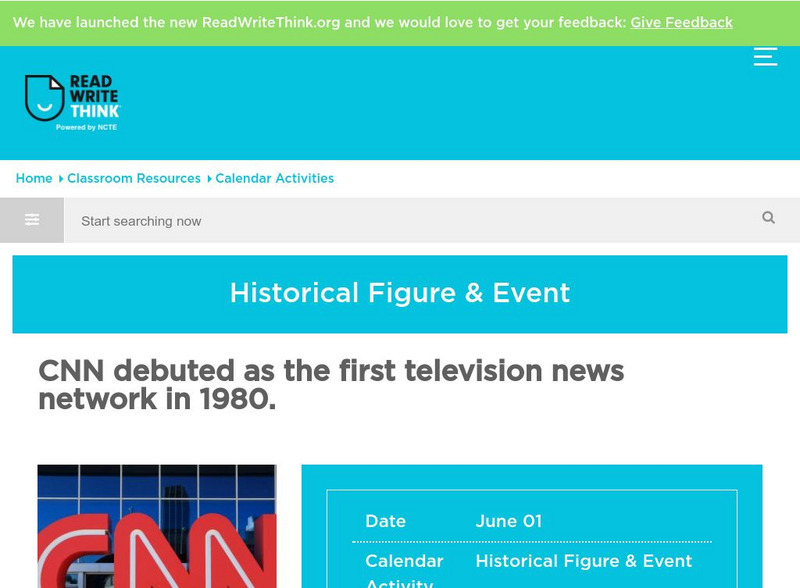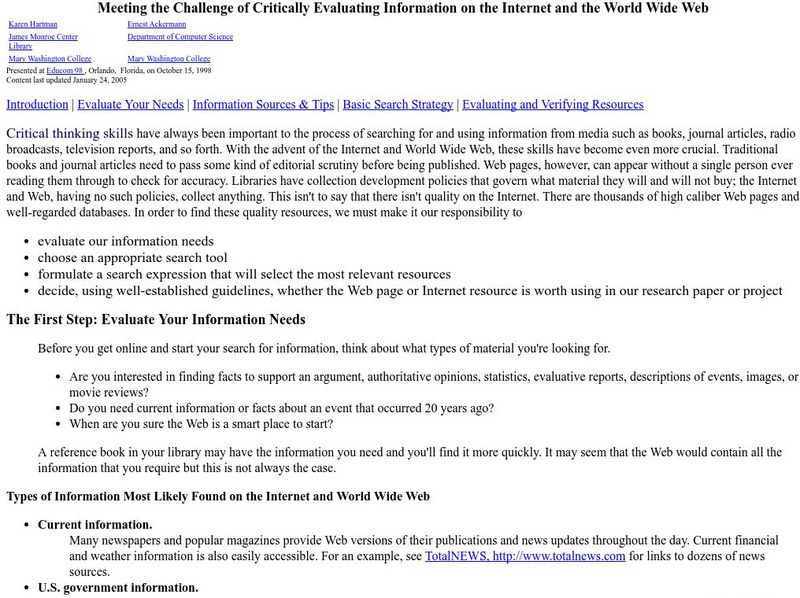ReadWriteThink
Read Write Think: Critical Media Literacy: Commercial Advertising
In this lesson, students will examine mass media critically and become aware of how much advertising is around them. They will realize the impact media has on social equality, what people buy, and on culture.
ReadWriteThink
Read Write Think: Questioning a Comprehension Strategy for Small Group Reading
Contains plans for three lessons about asking the right questions while reading. After the teacher explains the difference between factual and inferential questions, middle schoolers practice using them in small-group guided reading. In...
New Zealand Ministry of Education
Nz Ministry of Education: Extra! Extra!
In this lesson students will learn about newspapers including the parts of a newspaper, purpose, and structure of articles. They will gather, record and present information from a variety of sources, using different technologies and...
ReadWriteThink
Read Write Think: Collaborating, Writing, Linking: Use Wiki to Tell Stories Online
This lesson has students create stories that reflect wiki kind of reading. Students begin by reading untraditional books that use fragmented storylines, multiple perspectives, and unresolved plots. They apply these same types of...
Daily Teaching Tools
Daily Teaching Tools: Things That We Read
This Daily Teaching Tools resource provides ways to motivate middle school students to read. A link is provided that contains 25 graphic organizers related to reading and note-taking.
ReadWriteThink
Read Write Think: Guided Comprehension: Self Questioning
Online lesson introduces students to the concept of self-questioning, assisting them in an understanding of question-answer relationships that should improve their reading comprehension skills. In-depth study will lead to improved...
TES Global
Tes: The Media: Understanding Key Media Areas
[Free Registration/Login Required] During this unit of study, students will analyze several types of advertisements. Students will analyze how authors pay attention to the language and visuals to appeal to their audiences.
Read Works
Read Works: Sense and Sensibility
[Free Registration/Login Required] An informational text about the sense of smell and the sense of taste. A question sheet is available to help students build skills in reading comprehension.
Read Works
Read Works: Practice Makes Perfect
[Free Registration/Login Required] An informational text about creating or improving innovative products. A question sheet is available to help students build skills in reading comprehension.
E Reading Worksheets
E Reading Worksheets: Fact and Opinion: Reading Test 3
A 25-question quiz where students must identify statements as fact or opinion. Results can be printed, saved, or emailed.
Sophia Learning
Sophia: Consuming Tv
In this tutorial, students will read about the viewing of television in American households through the reading of a passage and the viewing of a video segment. Students will then engage in answering basic comprehension questions,...
Sophia Learning
Sophia: Identifying the Question Type
In this slideshow tutorial, students will review the different types of reading comprehension questions. Examples of different question stems are provided.
Sophia Learning
Sophia: Note Taking: Word Selection
A screencast lesson [8:35] explaining how to determine which information is necessary and relevant when taking notes.
Sophia Learning
Sophia: Your Turn Ad
In this persuasive media lesson, students will engage in viewing a Trix cereal advertisement and then engage in the process of "deconstruction" to analyze the use of propaganda techniques to attract customers. Then students will choose...
BBC
Bbc: Skillswise: Listening for Specifics
This Skillswise site focuses on listening for specifics. Included are a video about why learning how to do this, fact sheets and worksheets for instruction, quizzes on the information presented, and games to practice the skill. The...
Other
Santa Rosa Library: How to Evaluate Information Resources
Tips and information about how to evaluate resources, both print and electronic. Includes information about source authority, purpose, objectivity, currency, completeness, and relevance. It includes a printable handout (top right)with...
ReadWriteThink
Read Write Think: Cnn Debuted as the First Television News Network in 1980
These lesson plans relate to the gathering and production of news and creating a visual timeline. There are links to other lesson plan ideas, as well as web links, and a brief bibliography. SL.11-12.2 Eval&Integrate sources
Other
Media Education Foundation: Deconstructing a Video Advertisement [Pdf]
Handout that leads students through an exploration of the visual and audio elements of a video advertisement as well as the effect these elements have on the intended audience and the community as a whole.
Education Development Center
Education Development Center: Tv411: Reading Structure of a News Story
Interactive lesson explains the content and organization of newspaper articles. Includes self-scoring exercises for practicing identifying the five W's (who, what, when, where, and why) in a series of brief news articles and a...
Education Development Center
Education Development Center: Tv411: Parts of a Newspaper
Learners click through a lesson about the parts of a newspaper and answer questions about the types of articles found in each section, headlines, and captions that would go with photographs. Links to related videos are also provided.
Education Development Center
Tv411: Reading: Parts of a Newspaper
A series of three activities help readers become familiar with parts of a newspaper, from sections to headlines and captions.
Other
Webliminal: Critically Evaluating Information on the Internet
This site gives excellent information on why it's important to evaluate the content of everything you find in cyberspace, and also tells you how to do so. It also contains information about using search engines effectively and how to...
Other
Center for Media Literacy: What Is "Critical" Viewing?
Understand the term "critical viewing" as it relates to visual literacy. Learn how to assess the media around you in order to become more knowledgeable and not easily manipulated by what you see.
Scholastic
Scholastic: 5 Surefire Strategies for Developing Reading Fluency
Improve students' fluency by doing the following in the classroom: "Model Fluent Reading," "Do Repeated Readings in Class," "Promote Phrased Reading in Class," "Enlist Tutors to Help Out," and "Try a Reader's Theater in Class."


